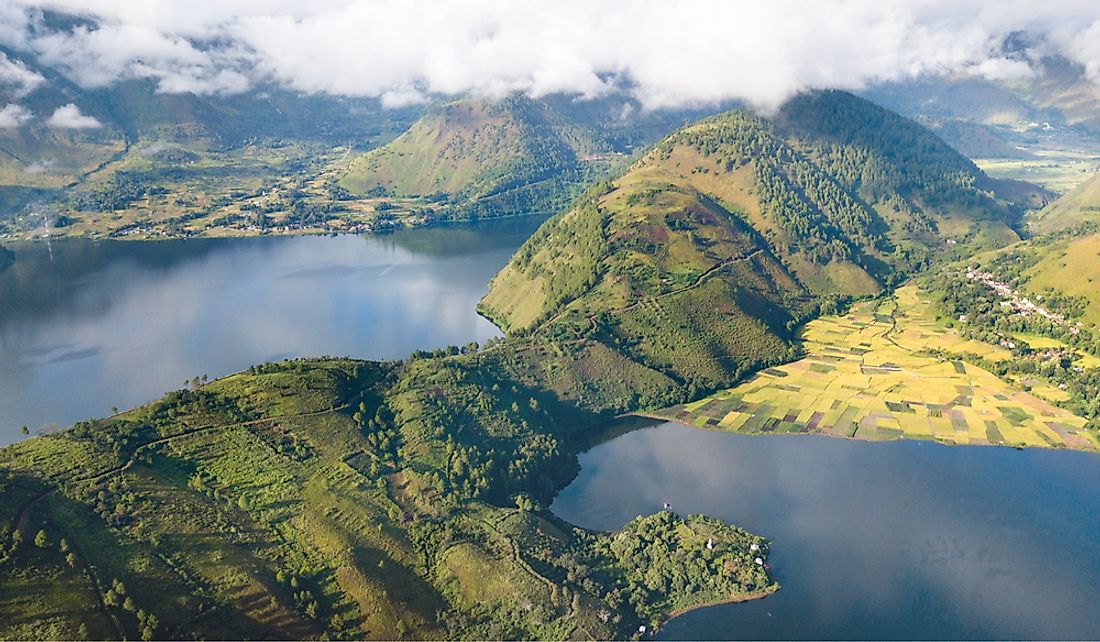Biggest Islands In Indonesia

Indonesia is the biggest archipelagic (consisting of a chain of islands) country in the world. The country is located in Southeast Asia and flanked on either side by the Indian Ocean and the Pacific Ocean. It is comprised of 14,752 islands and islets, of which only 6,000 islands are inhabited. It has a total land area of about 741,050 sq miles. Many of the islands are volcanic in origin. Listed below are the largest islands that are controlled either in whole or in part by the nation of Indonesia.
The Largest Islands of Indonesia
New Guinea
New Guinea is the largest islands on this list at 303,381 square miles. Indonesia controlls the western part of the island while Papua New Guinea controls the eastern part. New Guinea is home to Indonesia's highest mountain, the Puncak Jaya.
Borneo
Second is Borneo with a land of area of 288,869 square miles. Its governance and territory is shared with Brunei and Malaysia. Indonesia owns 73% of the island while Malaysia owns 26%, and Brunei owns 1% of the island. The Indonesian portion of the island is often referred to as Kalimantan.
Sumatra
Third is Sumatra with 184,954 square miles of land area. Sumatra is the largest island controlled wholly by Indonesia. The island is known for its monster flower the Rafflesia arnoldii, and the 2004 Indian Ocean Tsunami that devastated and caused the death of thousands of islanders.
Sulawesi
Formerly known as Celebes, the island of Sulawesi covers 69,761 square miles making it the fourth largest Indonesian island. It is one of the Greater Sunda Islands and is composed of four peninsulas. The Strait of Makassar separates Sulawesi from Borneo.
Java
Java tops the list as the most populous among Indonesia's many islands. Java has a land area of 53,589 square miles, packed with a population of 141 million as of 2015. Jakarta, the capital and largest city, is located on Java island.
Other Major Islands of Indonesia
Next in order are Timor (shared with East Timor) at 10,972 square miles, Halmahera at 6,865 square miles, Seram at 6,621 square miles, Sumbawa at 5,554 square miles, and Flores at 5,464 square miles.
Socioeconomic Significance of Modern Indonesia
In the 19th Century, Indonesia was a colony of the Netherlands and was known as “the Netherlands' Indies.” Only in 1945 did Indonesia declare independence after seemingly 350 years of foreign domination of oppression and violence. The many islands of Indonesia contributed to the socioeconomic advances in the country with raw materials exports that eventually resulted in high aspirations of state formation, economic integration, and globalization. Today, Indonesia is a world leader in the production of rice, coffee, tea, rubber, and spices.
The Biggest Islands Of Indonesia
| Rank | Island | Area |
|---|---|---|
| 1 | New Guinea (shared with Papua New Guinea) | 303,381 square miles |
| 2 | Borneo (shared with Brunei and Malaysia) | 288,869 square miles |
| 3 | Sumatra | 184,954 square miles |
| 4 | Sulawesi | 69,761 square miles |
| 5 | Java | 53,589 square miles |
| 6 | Timor (shared with East Timor) | 10,972 square miles |
| 7 | Halmahera | 6,865 square miles |
| 8 | Seram | 6,621 square miles |
| 9 | Sumbawa | 5,554 square miles |
| 10 | Flores | 5,464 square miles |











